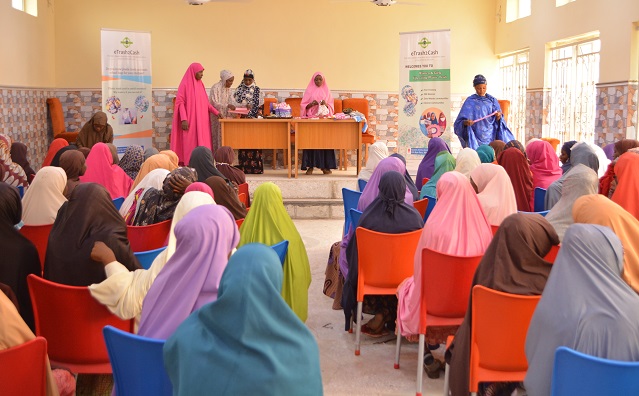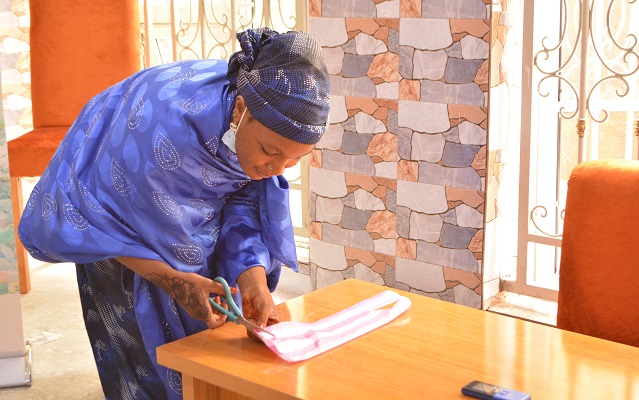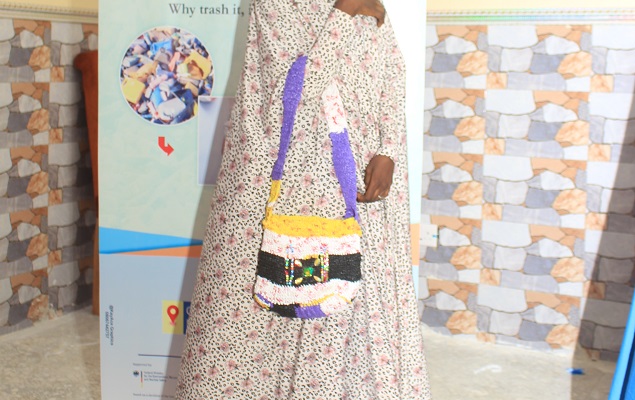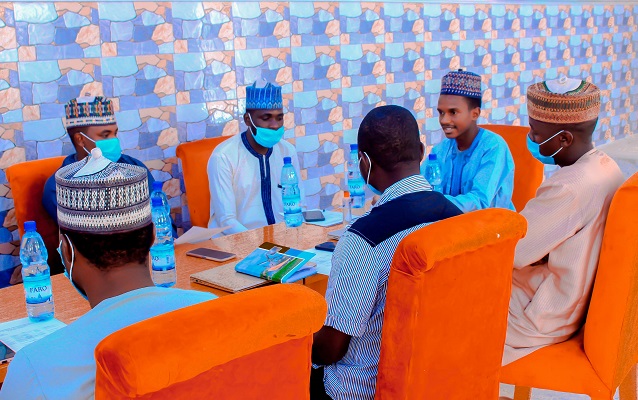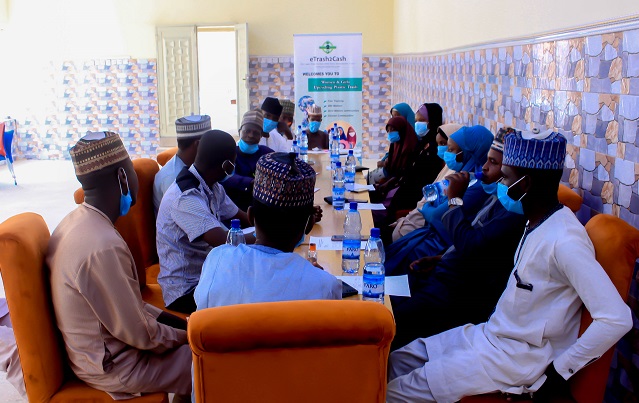Women re- and upcycling plastic trash
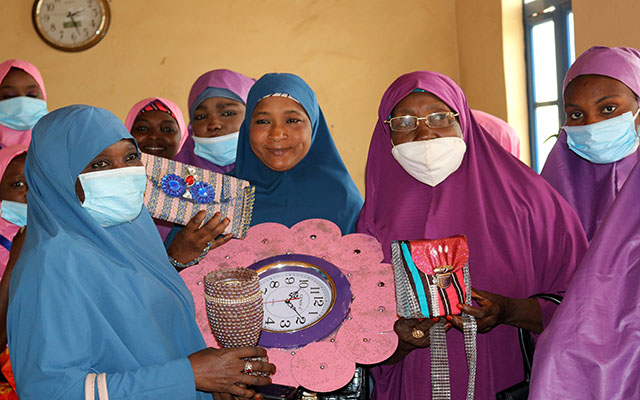
The flood of plastic waste is one of the biggest environmental problems in Nigeria. It also contributes to air, water, and soil pollution. The IKI Small Grants project aims to reduce greenhouse gas emissions by recycling and upcycling plastic waste and other types of waste in Bauchi State, Nigeria. The project addresses this issue by training 200 low-income and disadvantaged women to become ‘Green Ambassadors’. They learn how to transform plastic waste into valuable items. With the items produced, the women’s families can earn additional income, which reduces their vulnerability and counteracts waste pollution. In addition, the ‘Green Ambassadors’ act as facilitators. They conduct grassroots education campaigns and sensitise their communities on the issues of sustainable waste management and climate change.
INITIAL SITUATION
Each major city in Nigeria generates up to 10,000 metric tons of trash per day. Estimations show that about 80 per cent of the trash could be reused. However, only 32 per cent of trash is recollected from the environment and thus only a small amount of trash is upcycled or recycled into reusable items. The rest of uncollected trash poses great environmental challenges to Nigeria´s population. Open waste burnings and improper waste disposal systems emit masses of greenhouse gas each year. At the same time, more than 87 million people in Nigeria live in low-income households, living on less than one US-Dollar a day. The Bauchi state which is the target area of the project is one of the poorest regions of North-Eastern Nigeria.
TARGET GROUP
The IKI Small Grants project targets 200 extremely poor, vulnerable, or disadvantaged women in Bauchi State. The targeted women and girls are housewives, single women or widows, with limited educational background, who live on less than one US-Dollar per day.
APPROACH AND ACTIVITIES
The project Women Re- and Upcycling Plastic Trash trains and empowers women and girls in the Bauchi State to become ‘Green Ambassadors’. They learn through practical trainings how to transform immediate plastic waste, generated in their community, into valuable items for reuse. Further, the ‘Green Ambassadors’ function as facilitators: they implement awareness campaigns on grassroot level sensitising 120,000 people on the issues of sustainable waste management and climate change.
The training is practical but simple. It teaches self-employment skills to turn or up-cycle readily available trash such as plastic waste bags into home use items, such as wall-hanging clocks, woven school bags, purses, stools, flower vases, and bangles. The targeted families can generate an additional income by selling these items. Through the project the women become financially independent whilst contributing to a positive impact on environmental sustainability and climate change.
The project creates a replicable blueprint that serves as basis for further upscaling in other states in Northern Nigeria.
LATEST PROJECT HIGHLIGHTS AND IMPACTS
- Project finalized.
- Training of 220 low-income women on direct up-cycling of plastic waste in local communities.
- Inauguration of the community hub Queen Amina Innovation Centre for low-income people on social entrepreneurship, sustainable environment, and climate change engagement.
ABOUT THE ORGANISATION
eTrash2Cash (eT2C Company Nigeria) is a social enterprise which uses innovation to address decades-old social and environmental issues in local northern Nigerian communities. The platform helps low-income communities to earn and save direct cash incentives in exchange for their everyday trash. All collected trash is then sorted, reprocessed and/or recycled into reusable raw materials and end products for use by the same communities. eTrash2Cash therefore contributes to reducing environmental nuisance in local communities, from air, water & land pollution, wastes-related floods by blocking drainage systems and generation of greenhouse gases or climate change effects.

